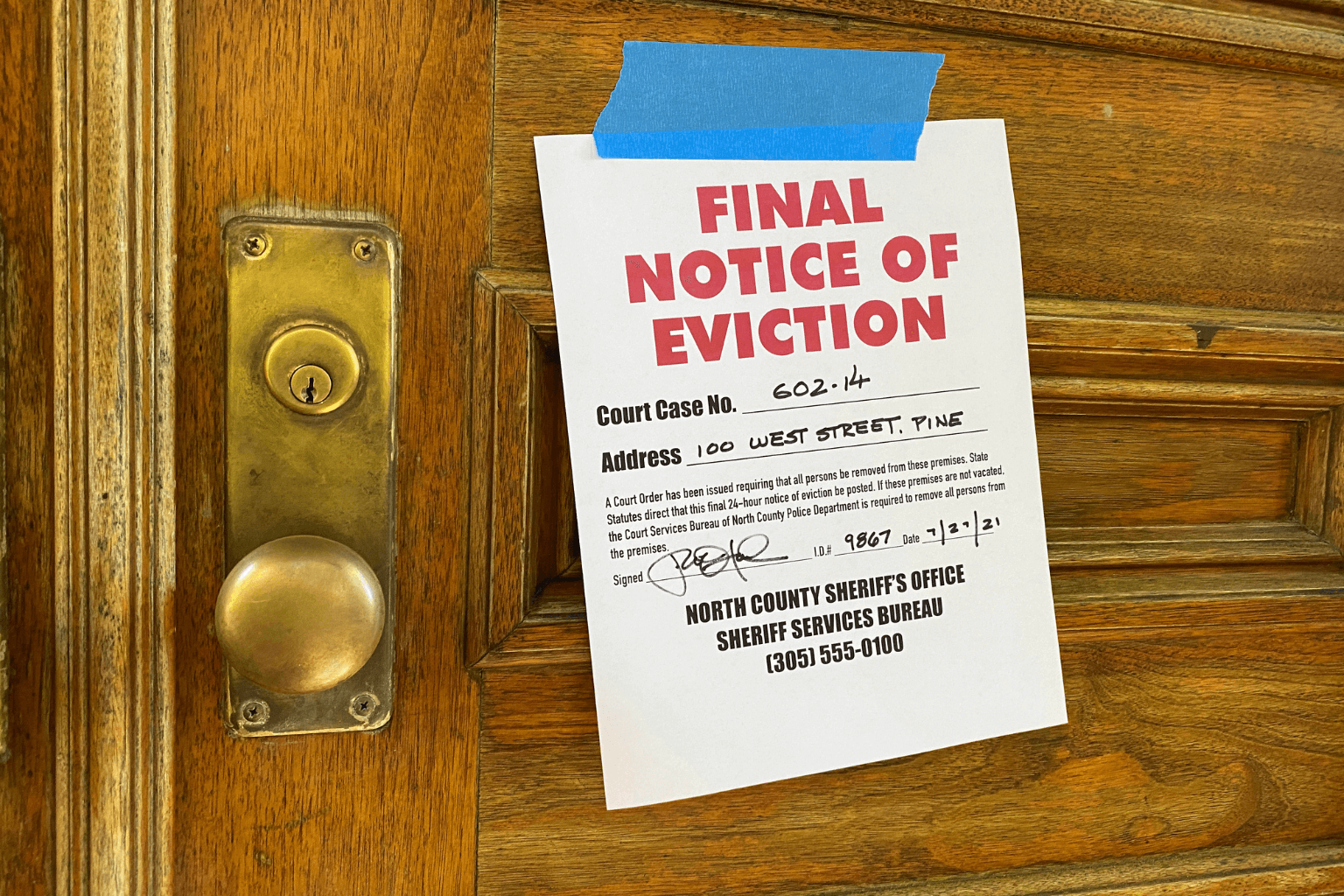Selling a Property While Managing an Active Eviction Process
Selling a house with an eviction in progress can be challenging, but we can navigate it with care and transparency. It's essential to understand the eviction process and communicate openly with tenants about the sale. We should disclose tenant occupancy to potential buyers while highlighting investment opportunities. Properly preparing the property and pricing it according to market conditions will also help attract buyers. There's more to evaluate, so let's explore the steps together.
Must-Read Alert: While you're here, check out How to Sell a Rental Property With Tenants in Place. It's gaining serious traction and complements this guide perfectly if you're managing a property with tenants.
Key Takeaways
- Disclose tenant occupancy and eviction status to potential buyers to manage expectations and build trust.
- Price the property competitively, factoring in repair costs and potential rental income loss during the eviction process.
- Document the eviction process meticulously to avoid legal complications and ensure compliance with local laws.
- Engage legal support to navigate the complexities of selling a rental property with an ongoing eviction.
- Maintain open communication with tenants about their rights and the sale process to foster cooperation and minimize disputes.
Understanding the Eviction Process
When we find ourselves trying to sell a house with an eviction in progress, it's essential to understand how the eviction process works. Most evictions begin with a legal reason, such as non-payment of rent or lease violations. As landlords, we must follow state-specific notice requirements, typically ranging from 3 to 30 days.
If tenants don't leave, we can file an eviction lawsuit, and a judge may issue a ruling. If the court favors us, local law enforcement may be authorized to carry out the eviction. For more legal guidance on this process, you can review California eviction resources for additional details.
Documenting every step matters. Missteps can lead to delays or legal risks, especially during the sale of tenant-occupied properties.

Legal Considerations for Selling During Eviction
Navigating the legal landscape of selling a house during an eviction can be challenging, but understanding the implications helps us make informed decisions. As property owners, we must recognize our legal obligations and the rights of our tenants. Here's a quick overview of key considerations:
Aspect | Details |
Legal Authority Post-Sale | New owners can't evict; tenant rights remain intact. |
Back Rent Claims | Former landlords can pursue claims after the sale. |
State Laws and Notices | Adhere to legal notice requirements affecting timelines. |
Transparency with potential buyers about the ongoing eviction is essential. This honesty influences buyer perceptions and their willingness to proceed. By understanding these legal nuances, we can sell a house with an eviction in progress while staying compliant and maintaining trust.
Disclosing Tenant Occupancy to Potential Buyers
Disclosing tenant occupancy is vital when we're selling a house with an eviction in progress. In California, for example, we're required to inform buyers if the property is still tenant-occupied.
For a deeper dive into this topic, check out our related post on selling rental property with tenants in California. It breaks down your responsibilities in different tenant scenarios.
Being transparent about tenant status can help us attract investors seeking income-generating properties.
Communicating With Tenants About the Sale
To guarantee a smooth process, we must communicate with tenants early about the property sale. Open communication fosters cooperation and minimizes friction.
Set Clear Expectations
Inform tenants about the upcoming sale and what they can expect to see. Be transparent about timelines and whether their lease or the eviction status might be affected.
Provide Proper Notice
Most states require at least 24 hours' notice before a showing can take place. Following this builds trust and keeps us legally protected.

Marketing Strategies for Properties With Evictions
Selling a house with an eviction in progress doesn't mean it won't appeal to buyers, especially investors. We need the right approach.
Marketing Strategy | Key Focus |
Transparency | Clearly communicate eviction status |
Visual Appeal | Use staging and professional photos |
Target Audience | Focus on cash buyers and investors |
Competitive Pricing | Price based on market and current status |
Want more insights into tricky real estate sales? Watch this short YouTube video on selling inherited property — it's packed with tips that also apply when dealing with legal and tenant hurdles.

Selling to Investors: Pros and Cons
Selling to investors during an eviction can make the process much easier, but there are trade-offs.
Pros:
- Fast closings with cash offers
- No repairs or staging needed.
- Investors understand eviction timelines.
- May assume current leases or continue eviction
Cons:
- Lower purchase price
- Less flexibility with terms
Still, for sellers prioritizing speed or simplicity, this route is often worth it.

Quick Cash Offers Ease the Stress
If we're under pressure, cash buyers can offer a fast way out. These buyers often close in as little as 7 days and purchase properties as-is, which is helpful when tenants are still living in the home or eviction is incomplete.
And if your property is located in El Cerrito or nearby, visit our page to learn how we buy houses in El Cerrito, CA, quickly and respectfully—even under eviction.
Preparing the Property for Sale
Even when a tenant is still in the property, we can make improvements that matter:
- Handle basic repairs
- Clean and declutter
- Capture strong photos
- Be upfront about property condition.
Small steps help us attract better offers without masking the situation.
Pricing the Property Appropriately
Pricing correctly is one of the most important parts of selling a house with an eviction in progress. We should:
- Look at comps with tenant issues
- Factor in repair and legal costs
- Be ready for negotiation.
- Explain the eviction status to justify pricing.
In some cases, pricing slightly below market can spark investor interest.
Navigating the Sale Process With Legal Support
Legal help during this process is not just helpful—it's often essential. A real estate attorney can:
- Review lease agreements and eviction timelines
- Ensure compliance with tenant laws.
- Help create required disclosures.
- Minimize the risk of disputes.
We're not just selling a house—we're managing a legal process. The right legal help keeps us on the right path.

Conclusion
To summarize, selling a house with an eviction in progress can be tricky, but with a thoughtful approach, we can turn this challenge into an opportunity. By understanding the eviction process, communicating clearly, and considering our marketing strategies, we can successfully navigate this situation. Remember, we're not alone in this journey; seeking legal support guarantees we're making informed decisions. Together, let's find the right path to a profitable sale while respecting everyone involved.





